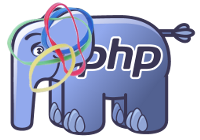Case Study: The BlueBox reviews Jelastic PHP Cloud hosting
“The perfect mix for us”
The BlueBox are a SaaS provider and specialise in web-based business systems. The BlueBox was started in 1997 and have been developing sophisticated business system tools and at the same time providing system developers with a platform on which to build and refine web based systems.
They’ve recently joined Layershift and started using our innovative Jelastic PHP Cloud Hosting service so we really wanted to get in touch with Paul de Villiers – Director & Lead Developer at The BlueBox to find out more details about how they settled in and managed to get their application hosted in the Cloud.
Q: Paul, tell us a little about The BlueBox
A: Our core product is BlueBox2.0 a full-featured ERP system that includes modules for Sales, Procurement, Inventory, Manufacturing, Marketing, Financial, Human Resources and Publishing.
We consult our solution to small/medium sized companies and pride ourselves in being able to bespoke each solution to fit our customer’s exact needs. Our average customer pays around £500-£1000 per month for our product on a month-by-month lease.

Read more…
Phalcon PHP on Jelastic
 Every developer knows that frameworks are a great help to implement a lot of application features in a very short time. Frameworks provide impressive development speed, but all of that power and functionality usually comes at a high cost – performance!
Every developer knows that frameworks are a great help to implement a lot of application features in a very short time. Frameworks provide impressive development speed, but all of that power and functionality usually comes at a high cost – performance!
Writing your own code, line by line, can lead to a more efficient solution – but it’s so much slower to develop. What if you could enjoy the benefits of a powerful framework to do more in less time, but still end up with a high performance application instead of something you have to time with a calendar?
Frameworks intentionally do a lot of heavy lifting for you, but that means your “simple” one-line code is actually a lot more complex than you probably realise! It’s not their fault things run slowly – all of those abstraction layers and modules running as PHP code – expecting it to perform well is a big ask.
Let me introduce a real gem of a framework here to solve that problem for you – Phalcon. It borrows from the ideas of PHP: running as compiled C code (just like the PHP engine itself does). By removing that extra layer (PHP) and running the framework at a lower level it performs much faster. It’s a more lightweight and nimble creature.
Don’t worry, you don’t need to learn a new language to use it: all of your code is still written in PHP!
Cloud hosting case study: King of Shaves
King of Shaves is the UK’s leading quality shaving and skincare challenger brand, founded in 1993 by Will King and offering a range of innovative products for both men and women.
Since Will King created the Original Shaving Oil in his kitchen back in 1993, King of Shaves now sells a product every three seconds worldwide and is regarded as one of the UK’s most innovative and successful challenger brands.
We spoke with Simon Watson, Head of Design at King of Shaves about how Layershift Managed Cloud Hosting responded to the King’s needs and did everything possible to help make their online Kingdom the greatest of them all.
Simon, who are you and what’s your background?
 I formally trained as a Graphic Designer at Middlesex Polytechnic graduating with BA Hons degree in 1991 before starting work for a small corporate design consultancy, Ludden Taylor, in London for five years working with blue chip clients like The BOC Group, Rolls Royce Aerospace, Philip Morris and the EU – we were one of the first studios to produce every piece of work completely on computers (Apple Macs, naturally). I then worked for a design and advertising agency called Ambleglow based in Maidenhead, Berkshire doing a mixture of recruitment and consumer advertising mixed with corporate identity design.
I formally trained as a Graphic Designer at Middlesex Polytechnic graduating with BA Hons degree in 1991 before starting work for a small corporate design consultancy, Ludden Taylor, in London for five years working with blue chip clients like The BOC Group, Rolls Royce Aerospace, Philip Morris and the EU – we were one of the first studios to produce every piece of work completely on computers (Apple Macs, naturally). I then worked for a design and advertising agency called Ambleglow based in Maidenhead, Berkshire doing a mixture of recruitment and consumer advertising mixed with corporate identity design.
An old school friend was working for a small male toiletries business, KMI – who owned the King of Shaves brand, and asked us to work on a few small projects for them. We started off doing a couple of leaflets and I ended up doing so much work for them that I was head hunted and ended up joining them full-time in 2001. During my time at Ambleglow, in conjunction with a specialist HTML / PHP coder, I designed and built the first major version of the King of Shaves website and online store at www.shave.com – my first proper internet project.
Managed PHP hosting with custom Apache modules
In Jelastic 1.9.2 we’ve brought enhanced support for Apache & PHP to the table. Our latest Jelastic release now offers mod_security and mod_geoip – both modules are installed by default and ready to use as soon as your environment is created.
Apache is arguably the world’s most popular web server; in 2009 it became the first to serve over 100 million websites. Since then, it’s continued to gain momentum! As of June 2013, Apache was estimated to be serving 54.2% of all active websites globally, across all TLDs.
Apache & Jelastic… sitting in a tree
There’s a couple of reasons why Apache has become one of the world’s most popular web servers – simplicity and ease of use. The most difficult part of getting up and running with Apache is the installation – Jelastic takes care of that!
Apache’s modular architecture makes it incredibly easy for anyone to add or remove functionality to (or from) their server. In fact, most of the functionality that comes built into a standard Apache installation is in the form of modules and can be removed or replaced as required.
Scalable PHP 5.4 and PHP 5.5 hosting

You asked for it and now it’s here! It gives us great pleasure to announce full support for PHP 5.3, PHP 5.4 and PHP 5.5 hosting across our Cloud VPS and Jelastic scalable hosting services. While PHP version 5.5 is new, PHP 5.4 has been available for some time on our Jelastic scalable PHP platform, but we’ve been eagerly waiting support for multiple PHP versions in the new Plesk 11.5 to launch this across our Cloud VPS range too.
Some of the top new features of PHP 5.4 hosting
- Traits allowing you to horizontally reuse code across independent classes in different class hierarchies
- Improved performance and resource usage optimisation, especially in some large apps
- Short Array Syntax to make it easier to define an array
- Direct de-referencing of function arrays
- Many other improvements such as: enhanced closure binding, ability to use objects as functions, binary number notation, native session handler interface, improved error messages and many bug fixes


